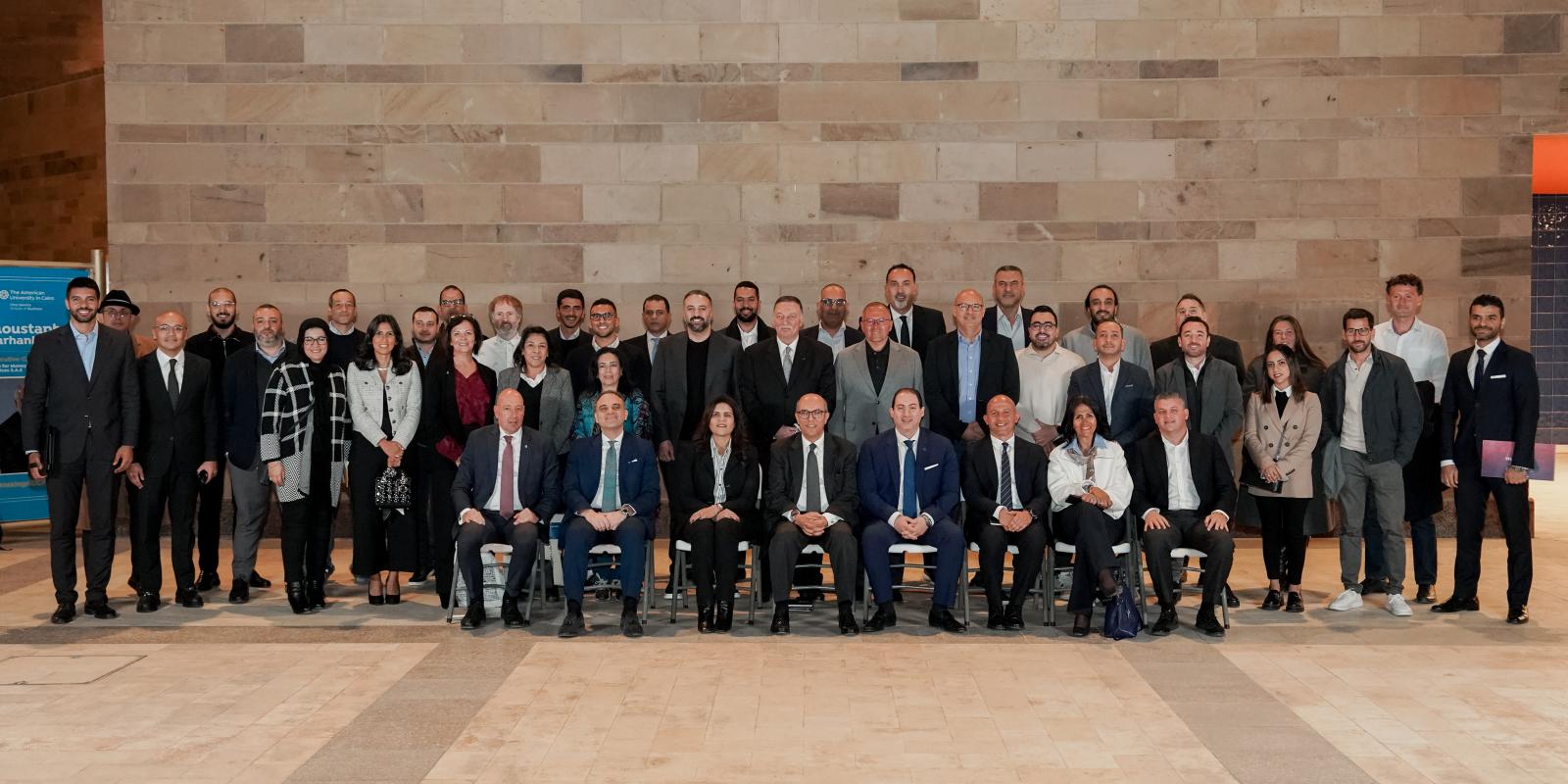
Navigating the Future of Business Education: Key Insights from the AUC Business Forum 2025
The Onsi Sawiris School of Business successfully concluded the sixth edition of the AUC Business Forum held on February 16 - 17, 2025.
This year’s forum brought together esteemed scholars, business leaders, industry practitioners and policymakers from Egypt and globally. Through four dynamic roundtable discussions, the forum addressed pressing global challenges while charting the rapidly evolving business landscape.
Internationalization Beyond Borders: Shaping Global Leaders
The first session, “Internationalization Beyond Borders,” explored how business schools can develop global leaders equipped to navigate an interconnected world. Experts emphasised the importance of cross-cultural competence and international career programs as tools for fostering global readiness among graduates.
“The world is too complex for the current definition of internationalization. Business schools must rethink how they prepare students for the global business world—beyond creating a global brand, it’s about creating sustainable and responsible leaders,” said Liz Warren, head of International at Manchester Metropolitan University, United Kingdom.
Dina Rashed, associate dean of the College for Academic Affairs at the University of Chicago, United States, highlighted the value of international career programs, stating, “Internationalization touches every aspect of the university—from curriculum to faculty to partnerships. At the University of Chicago, we cultivate multinational communities and provide students with funded internships and global centers to access opportunities worldwide.”
The panel also addressed challenges such as geopolitical shifts, visa restrictions and the need for soft skills to lead diverse teams. Sherif Kamel, Dean of the Onsi Sawiris School of Business, emphasized: “Internationalization is about enriching the student experience beyond borders. It’s more than global partnerships—it’s about preparing students to adapt, innovate and thrive in a globalized world.”
View photos of the sixth AUC Business Forum: Session one
Corporate Governance: The Foundation of Sustainable Practices
The second roundtable, “Monitoring Corporate Governance: A Focus on Reporting, Diversity and Performance,” centered on the critical role of corporate governance, The Foundation of Sustainable Practices. Discussions centered on the importance of ESG (Environmental, Social and Governance) reporting, gender diversity and data-driven decision-making.
“Sustainability is the DNA of the IFC. Reporting is not a performance—it is a process and an output approach,” explained Moez Miaoui, head of ESG Advisory at the International Finance Corporation (IFC). He highlighted the need for standardized reporting methods and regulatory frameworks to ensure accountability.
On the topic of diversity, Laudy Lahdo, senior advisor at ENGIE and chair of the 30% Club, noted: “Diversity is not at the expense of merit—it drives merit and innovation. Women are increasingly inheriting global wealth and their leadership will be transformative for inclusivity and equality.”
Panelists also discussed data gaps, cultural expectations and the backlash against ESG initiatives, urging business schools to take a stand for responsible governance.
View photos of the sixth AUC Business Forum: Session two
Experiential Learning: Preparing Future-Ready Graduates
The third roundtable, “Experiential Learning and Future-Proofing Graduates of Business Schools,” focused on integrating real-world applications into business schools’ curricula to prepare students for the evolving demands of the workforce.
“Gen Z learners demand purpose, agility and real-world application. We must move beyond traditional methods to immersive, experiential learning like simulations, capstones and hackathons,” said Samar Sayegh, PwC partner and PwC Academy Middle East leader.
Panelists emphasized the importance of AI-driven learning, digital and interdisciplinary skills and hands-on experiences to address the demands of fields, like fintech, AI and sustainability. Experiential programs such as student immersion trips, collaborative problem-solving initiatives and the AUC’s V-Lab entrepreneurship platform were highlighted as effective models.
“Experiential learning is about going beyond the textbook—it’s about building networks, fostering innovation and embedding ethical practices into the curriculum,” noted Ahmed Abdel Meguid, associate provost for enrollment management at AUC.
View photos of the sixth AUC Business Forum: Session three
Sports Management: A Thriving Industry
The final roundtable, “Sports Management: Elevating Calibers and Building Future-ready Sports Leaders” examined the untapped potential of the sports industry as a driver of economic growth and social impact.
“Sports are no longer just entertainment; it’s a thriving industry that rivals sectors like food and automotive, with immense potential for economic growth and social impact,” remarked Dino Ruta, professor of practice in leadership, sports and events Business, Knowledge Center director, SDA Bocconi, Italy.
The session also emphasized the transformative power of sports as a tool for enhancing inclusivity, community building and economic development. Discussions highlighted the need for stronger collaborations between universities and sports organizations, with insights into how industry partnerships, global internships and interdisciplinary teaching can prepare students for leadership roles in this dynamic field.
View photos of the AUC Business Forum: Session four
Paving the Way for the Future of Business Education
The AUC Business Forum 2025 provided a platform for impactful conversations on topics that shape the future of business education. From internationalization to corporate governance, experiential learning and sports management, the forum highlighted the need for innovation, collaboration and student-centered approaches in preparing graduates for a globalized world.
As Samer Atallah, associate dean for graduate studies and research at the Onsi Sawiris School of Business summarized: “The themes of this forum reflect the strategic direction of the AUC Onsi Sawiris School of Business—developing skills, building partnerships and preparing students to lead in an ever-changing world.”
The AUC Onsi Sawiris School of Business remains committed to fostering innovation in business education through research, teaching and collaboration, equipping students for a thriving, globally interconnected future.
